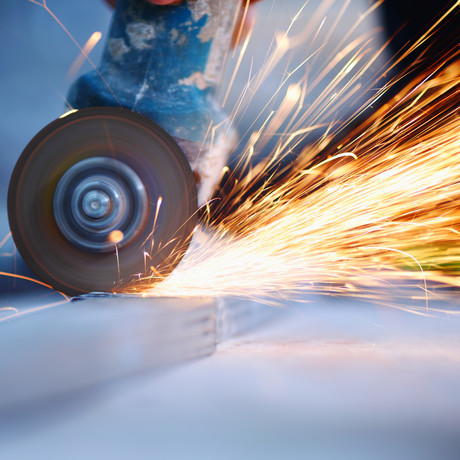Welding explosion kills worker

A Queensland worker has died after an explosion took place while he was welding.
The man was making a tractor counterweight by welding empty fuel drums to a steel frame.
According to a Workplace Health and Safety Queensland incident alert, when the worker placed the welder to the top of a drum, there was an explosion that engulfed him.
The fuel or ignition source has not yet been confirmed and investigations into the incident are continuing.
The incident alert from Workplace Health and Safety said: “Welding generates heat, flames and sparks — all of which are sources of ignition. When combined with fuel and oxygen, sources of ignition present a significant risk of fire and explosion. While the greatest risks are with common flammable liquids like petrol, avgas and ethanol, combustible liquids such as diesel fuel and oils can behave like flammable liquids when they are heated.
“When heated, these liquids may generate vapours that, when confined, can also cause an explosion when ignited. You must manage health and safety risks associated with an ignition source in an atmosphere that has a concentration of flammable gas, vapour, mist or fumes that exceed 5% of its lower flammability limit (hazardous atmosphere). This includes identifying all sources of ignition, such as welding, hot cutting and grinding, which generate heat, flames and sparks.”
Re-use of fuel containers should be avoided and containers should be properly disposed of.
Workplace Health and Safety recommends the following control measures to manage fire and explosion risks:
- Isolate fuel sources from ignition sources so they cannot interact.
- Remove all traces of flammable or combustible materials from containers such as drums, vessels and tanks prior to welding or similar hot-work activity. This may require cleaning, noting that unless containers have been cleaned out to be free of flammable and combustible substances, vapours can remain in containers for many years, and rinsing drums may not be enough to remove vapours from within a container.
- Purge or fill containers with an inert substance such as nitrogen gas or water, noting that use of inert gases may introduce other risks.
- Ensure all containers are properly labelled.
- Use fire-resistant barriers to prevent welding sparks reaching flammable and combustible materials.
- Check work areas are well ventilated to prevent accumulation of flammable vapours in the work area.
- Check work area is free from rubbish, paper or dust that could be potential fuel sources or produce dust explosions.
- Do not store flammable and combustible materials near welding area.
- Keep and maintain firefighting equipment near welding area.
Businesses should also ensure the appropriate personal protective equipment is worn for the activity undertaken.
“Each year, there are approximately 27 workers compensation claims involving an explosion. Of these claims, almost 40% result in a serious injury with five days or more off work. On average, there is one fatality every year,” said the incident alert.
“Since 2012, Workplace Health and Safety Queensland has been notified of 11 events pertaining to workers or bystanders welding a container when it exploded, two of these involved a fatality. In the same period, 14 notices were issued by Workplace Health and Safety Queensland — 13 improvement notices and one prohibition notice pertaining to workers or bystanders welding a container when it exploded (or the risk of same).”
Psychosocial hazards and harassment codes of practice commence
New codes of practice on psychosocial hazards and sexual and gender-based harassment have...
Regulator calls on employers to "do more" to protect apprentices
WorkSafe Victoria has used data on WHS breaches that harmed apprentices or placed them at serious...
NT WorkSafe responds to ICAC investigation
NT WorkSafe has acknowledged recommendations made by the Office of the Independent Commissioner...








